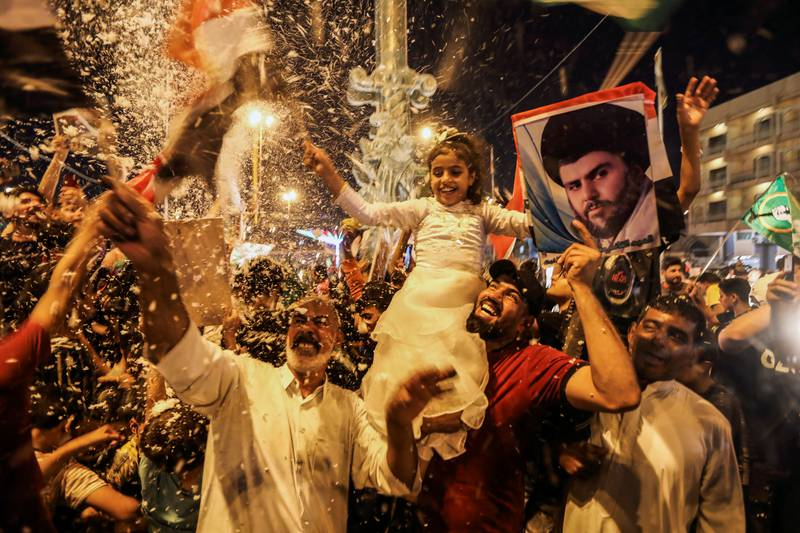
Shiite cleric Moqtada Al Sadr – whose bloc won the largest share of seats in Sunday’s national elections – has formed his negotiation team to start dialogue with other political parties.
On Sunday, Iraq held its fifth parliamentary elections since the 2003 US-led invasion that toppled Saddam Hussein’s regime.
The elections were originally scheduled to be held in May next year but were brought forward to appease the pro-reform, youth-led protest movement that engulfed the country in October 2019.
The elections drew a poor turnout – only 41 per cent – the lowest in all Iraqi elections since 2005, underlining the growing disenchantment among Iraqis for a political system that is widely seen as broken.
On Thursday, Mr Al Sadr picked four senior politicians to form the committee, according to a document signed by Mr Al Sadr and addressed to political parties.
It will be headed by Hassan Al Ethari, Nassar Al Rubaie as first deputy, Nabeel Al Tarfi as second deputy and Hakim Al Zamily, the document shows.
Mr Al Sadr sets the committee limits to form coalitions only with winners, a vital step ahead of parliament’s first session when the biggest bloc must be announced in order to be given the right to form the government.
“The committee has full powers in regard to parliamentary and political coalitions at this stage,” Mr Al Sadr said.
The document was first published on social media. One of its members confirmed its authenticity to The National.
Initial results for slightly more than 94 per cent of the votes that were released so far show the Sadrist bloc with 72 seats in the 329-seat parliament.
Sunni Parliament Speaker Mohammed Al Halbousi’s Taqadum party came second, with 37 seats, while former prime minister Nouri Al Maliki’s State of Law bloc was third, with about 35.
Gains for independents
Independent candidates, mainly those linked to the protest movement, are expected to gain at least 30 seats.
The Iran-backed Fatah bloc led by paramilitary leader Hadi Al Amiri, comprising an array of politicians and militia commanders linked to Tehran, looked likely to suffer significant losses, securing only 17 seats.
It is expected that Mr Al Maliki and Mr Al Amiri as well some others will join forces to form a bloc that can counter Mr Al Sadr.
The country’s Independent High Electoral Commission is still manually counting several thousand ballot boxes to match them with the electronic vote.
The number of seats could be slightly changed after adding results from the rest of the boxes. The commission did not give a specific date when the manual count will be completed.
The initial results are being contested by Fatah and several other Shiite political parties, as well as some independent candidates.
